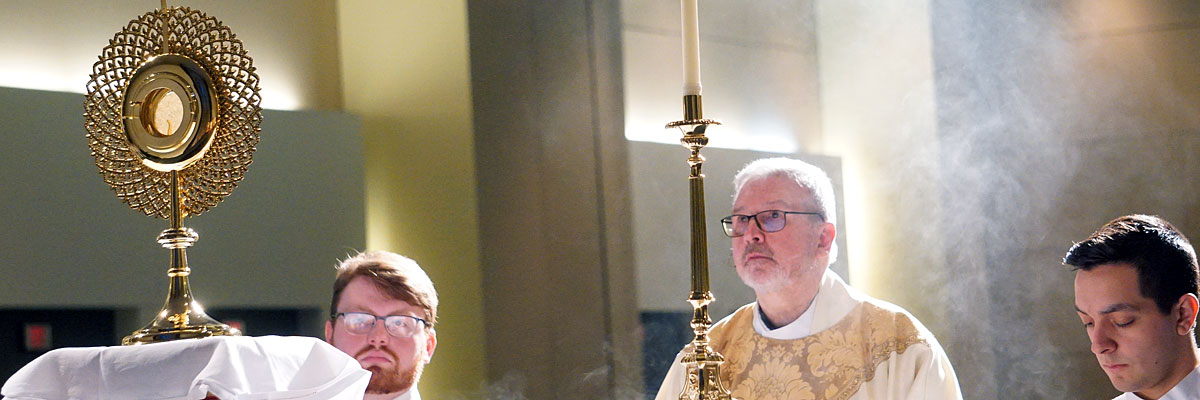Official Website of the
Catholic Diocese of Little Rock
14th Sunday in Ordinary Time, Year B, 2024
Published: July 7, 2024
Bishop Anthony B. Taylor preached the following homily during the deacon recommitment Mass at St. John Catholic Center in Little Rock on Sunday, July 7, 2024.

Bishop Taylor
If you attended college away from home, think back and remember what that first summer back home was like at the end of your freshman year. During the year I was away, one of my brothers took over what had been my part of the room and filled what had been my part of the dresser with his clothes.
But the biggest change was inside of me: I was no longer used to having a curfew or needing to get permission to stay out late, or having to answer to anyone for where I was going, what I would be doing and why. Sound familiar?
After a year out on my own, I was used to making my own decisions. They say you can never really go back home to the way things used to be: I was still my parents’ son, but I had changed. They treated me like an adult and so I naturally kept them posted on my activities and helped out with whatever they asked. But I’m pretty sure that if they had instead treated me like a child who still needed close supervision, I’d probably have gotten my back up and resisted.
Most of us no longer live in our childhood home, and many of us are not even in the same town we were raised in. But as we see in the case of Jesus, leaving home is as much a spiritual event as it is a matter of geography.
They began that summer not quite knowing how to treat me, but by the end of that summer, they had reached the point of being grateful that I no longer required supervision. I was now one less thing for them to worry about.
In a similar way, Jesus in today’s Gospel was now out on his own living in the relatively big city of Capernaum — big at least compared to Nazareth. And as we see, Jesus has changed a lot since leaving home. He has begun a second career, taken up his God-given vocation in life: teaching and healing people, which has changed him and made him famous.
But when he came home for a visit, the small-town people he grew up with couldn’t believe he had really changed that much — they thought they knew him better than they really did. So when he tried to teach in the synagogue, they refused to take him seriously, saying: “Where did he get all this?” — meaning, in effect, “Who does he think he is?”
They still thought of Jesus as a simple craftsman without much to offer. “Is he not the carpenter, the son of Mary, and the brother of James and Joses and Judas and Simon? Are not his sisters here with us?” And they took offense at him. What they couldn’t fathom was that after a time out on his own away from these small-minded people, he had become a spiritual giant.
Most of us no longer live in our childhood home, and many of us are not even in the same town we were raised in. But as we see in the case of Jesus, leaving home is as much a spiritual event as it is a matter of geography.
We were raised not only in our parents’ house as in real estate, but also in the spiritual home that they created for us. But in order to become an adult, we eventually have to leave this childhood home and develop our own adult spiritual life, which will be just as distinct from that of our parents as our physical life eventually becomes.
The first step to spiritual adulthood is for us to develop our own personal, life-giving relationship with the Lord, which will, of necessity, reflect our own temperament and interests and insights, a spiritual life that will inevitably be distinct from that of our parents — even if you are a cradle Catholic.
We are not God’s grandchildren, we are his children; we may have received our faith through our parents, but we cannot live their faith any more than we can live their marriage. Spiritual adulthood means having a personal relationship with Jesus ourselves.









